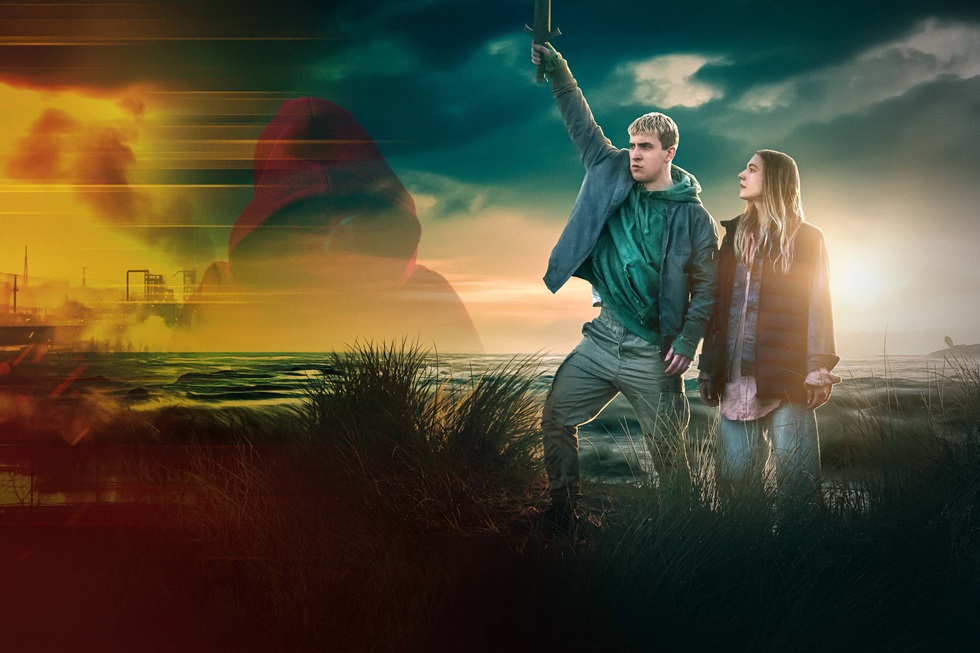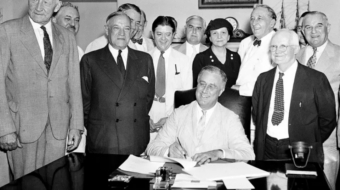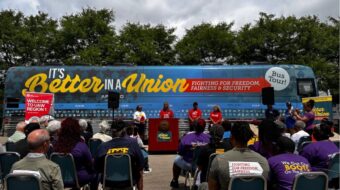
“I’m mad as hell and I’m not going to take this anymore,” about-to-be-fired news anchor Howard Beale screams in a television rant, urging everyone to go to the window and yell the same thing. This scene from the film Network, much honored and claimed to be prescient, in fact represents simply mindless, ungrounded fear, vaguely articulated, not drawn from the specific material aspects of people’s lives and thus open to a kind of manipulation that can easily be converted into simple resentment—and would become the basis of today’s populism.
Unfortunately, these ungrounded impulses, now 45 years on in the aftermath of the devastation wrought by Reagan, Thatcher, et al.’s austerity and neoliberalism, are the basis of the BBC series The Way, a byproduct of documentary filmmaker Adam Curtis, who helped conceptualize the three-part series. He displays his not inconsiderable strengths (in tracing advertising industry manipulation in The Century of the Self) but also glaring weaknesses (evidenced in the more recent anti-revolutionary, rabidly anti-populist of Can’t Get You Out of My Head).
The Way blends a loosely constructed family fiction around the Welsh steel and former mining town of Port Talbot with documentary footage of the 1984 miners’ strike and a mythical other-worldly aspect that summons King Arthur’s pulling the sword from the stone, the lifting of the series title phrase “The Way” from the Star Wars world’s Mandalorian code of conduct, and Scottish folklore of a proselytizing Red Monk who kick starts a town rebellion.

Into the soup is thrown the actual condition of the steelworks, with an Indian owner, in the series Japanese, who is always on the verge of closing the plant. The problem, and this is a Curtis mainstay, is that the characters are utterly deceived by a passive mediated lifestyle. Owen, the lead character, who “can’t remember the last time I felt anything,” is, as his love interest describes, “a drug addict in recovery dealing drugs,” to which her response is “I don’t care, it’s not my business.”
This passivity and foolishness influence their actions, as workers in the town strike the plant before it can close, though no immediate closing is threatened, with Owen’s tossing of a lead pipe which ignites the carnage with the police echoing the bone thrown across the ages in 2001: A Space Odyssey, only this time signaling the utter breakdown of civilization rather than in Kubrick’s film signifying its terrifying advance.
Wales is sealed off from “Britain” and thus begins in episode two the family’s own odyssey as they attempt to march to safety in a now open police state. In the series, much hostility is summoned but it remains vague (“The British don’t revolt, they gripe”) with the actual problems of deindustrialization and a devastated economy expressed in generalized slogans that do not directly confront the power structure and the massive redistribution of wealth that began in 1980 with the launching of the neoliberal era, in the moment a little after Network premiered. In that film, people start throwing their televisions out the window when they might better have stormed the television station and taken over the media means of production.
Both the original and this new iteration of an ungrounded populism give much credence to the abstract expression of grievances felt by the population, but behind each lies the firm conviction that workers are too coddled and deceived by omnipresent media to be able to do more than threaten irrational action, a mindset disproved, for example, in the massive entertainment and service industry strikes which marked the summer of discontent in Los Angeles and which continue throughout the U.S. These strikes, though, have specific demands and represent a growing understanding and awareness by workers of not only their situation but of how to use today’s media for their own purposes, an understanding not present in The Way.
If the site of this action, the Port Talbot steel plant, along with another plant closes, the UK would, instead of making steel, only be fashioning steel from scraps, that is, leftovers. In a way The Way, with its muddled mix of genres and its deceived chaotic individuals, is also fashioned from scraps; that is, the leftovers and the detritus of the entertainment industry and the subjectivity of its victims who in this telling offer only confused resistance.
We hope you appreciated this article. At People’s World, we believe news and information should be free and accessible to all, but we need your help. Our journalism is free of corporate influence and paywalls because we are totally reader-supported. Only you, our readers and supporters, make this possible. If you enjoy reading People’s World and the stories we bring you, please support our work by donating or becoming a monthly sustainer today. Thank you!










